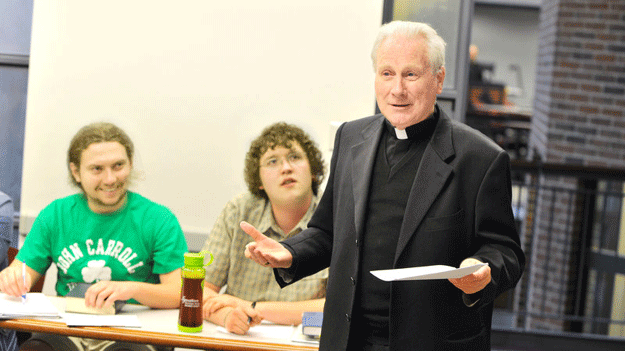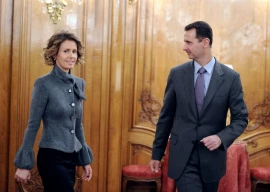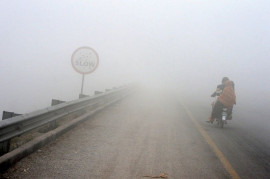
Michael Fitzgerald decided to be a missionary in Africa when he was just twelve years old. Eight years later he studied theology and learnt Arabic in Tunisia.
He devoted his priestly ministry to the promotion of better interfaith understanding between Christians and Muslims and became the top Roman Catholic experts on Islam. He served as the archbishop of Tunisia, a Vatican ambassador in Cairo, and the Vatican's delegate to the Arab league.
He took on the challenging task of encouraging fellow Christians to learn more about Islam and the Holy Quran at a time when non-Muslims' perception of Islam has become associated with violence, and many Muslims believe the West has declared war on their religion.
According to the Bishop:"The more you understand a religion, the better it is," Fitzgerald says, "whether it's Christians studying Islam or Christians studying Christianity or Muslims studying Christianity. I think this helps in your relations."
While serving as a priest in Africa, Fitzgerald represented the interests of Christians in states with a Muslim majority but at the same time showcased enough knowledge for Muslims to turn to him for guidance into their own faith occasionally.
After his retirement he began teaching a course on Quran to a small group of undergraduate and graduate students at John Carroll University, a Jesuit institution in Cleveland.
In his classes he frequently highlights the differences between the religions while encouraging respect for the different Muslim approaches.
During a class he revealed that while the Gospel is read, the Islamic prayer is recited and the Imam has to know the Quran to be able to do that. He said it is very good to become a 'Hafiz' explaining that the Hafiz is someone who has memorized all of the Quran.
He pointed out that Muslims view the Quran as a sacred object and are very careful about how it is touch and by whom.
He challenged the students to find a comparison in Christianity, to which a student responded: "When I was reading about this, I thought about the Eucharist," he said. "Because this is their direct word from God, and like the Eucharist is God for us, the Quran is God for them."
"Yes," he nodded. "In a way, the Quran is a sacrament, isn't it? It's a sign of the presence of God."
There are a few Muslim student enrolled in his class one of which, Abu-Shaweesh, who wears a head scarf, claims she learns something new in each class.
The Bishop occasionally asks her to explain Muslim practices and traditions to the class.
Abu-Shaweesh adds that she is awed by the respect shown for Islam by her non-Muslim classmates:"They chose to take this class, first of all," she says. "Second, the amount of questions and comments [they have] — like some people just being astonished by the verses. A lot of them will say 'These are so beautiful — I never knew,' because the media focuses on such negative things instead of focusing on everything else."
The Bishop acknowledged that he has encountered criticism from Islamist extremists while serving as the Vatican's representative in Cairo and with the Arab League. But the Bishop has earned respect even from Muslim scholars.
"What is important here is knowledge," says Zeki Saritoprak, who directs the Islamic studies program at John Caroll University.
"A well-informed Christian can teach Islam better than an ill-informed Muslim," Saritoprak says. "I would rather have Muslims learning about Islam from a Christian like Archbishop Fitzgerald than from a propagandist for an organization like ISIS."
However, the Bishop's message for Christians is that Islam is religion worth respect as is Christianity.
The article originally appeared on NPR.
1728297472-0/Fousey-(1)1728297472-0-405x300.webp)



1734934494-0/Untitled-(82)1734934494-0-165x106.webp)
1734934759-0/Copy-of-Untitled-(77)1734934759-0-270x192.webp)
1734932037-0/Copy-of-Untitled-(74)1734932037-0-270x192.webp)


1734920182-0/Nigeria-(1)1734920182-0-270x192.webp)






1734778885-0/Untitled-(10)1734778885-0-270x192.webp)






COMMENTS
Comments are moderated and generally will be posted if they are on-topic and not abusive.
For more information, please see our Comments FAQ